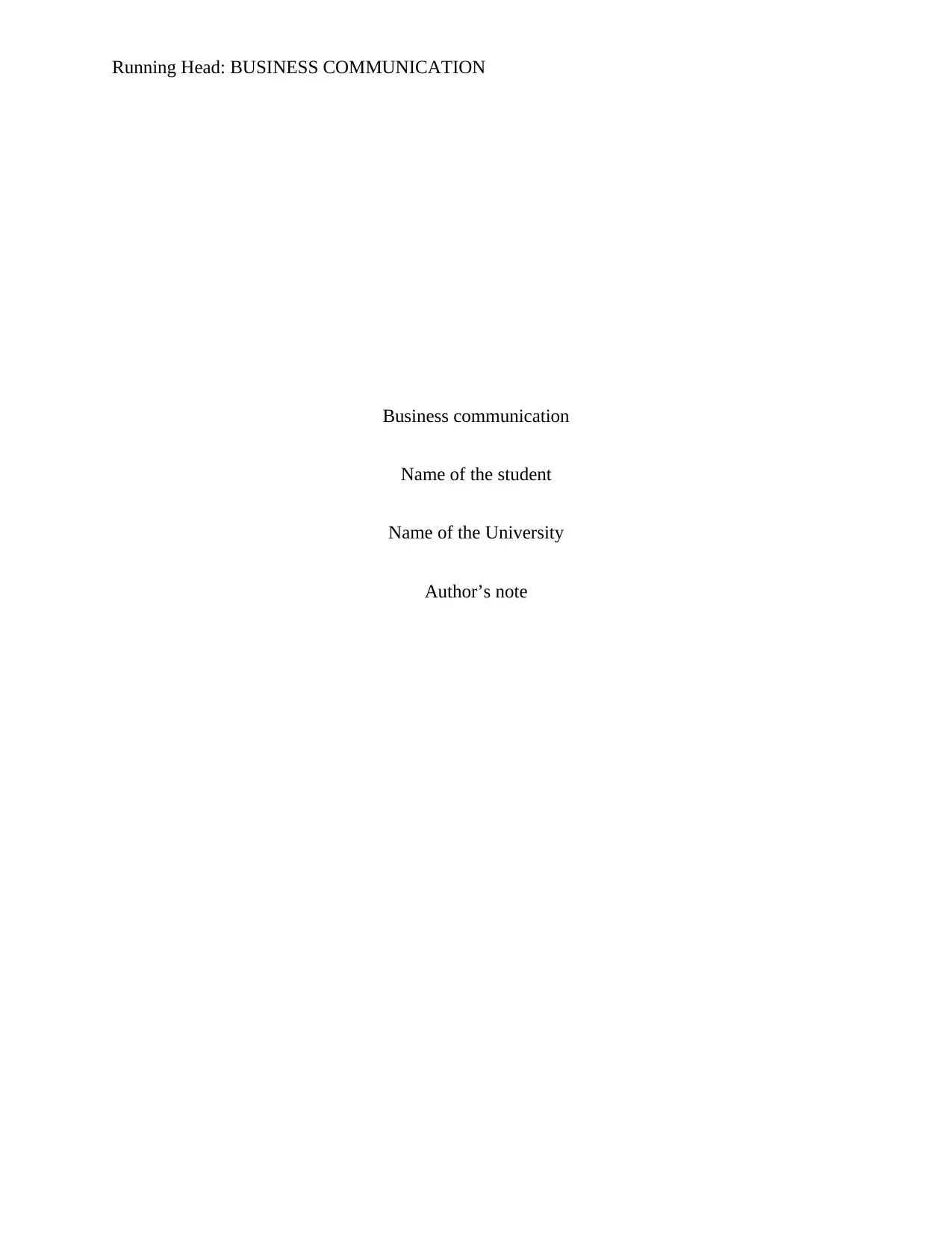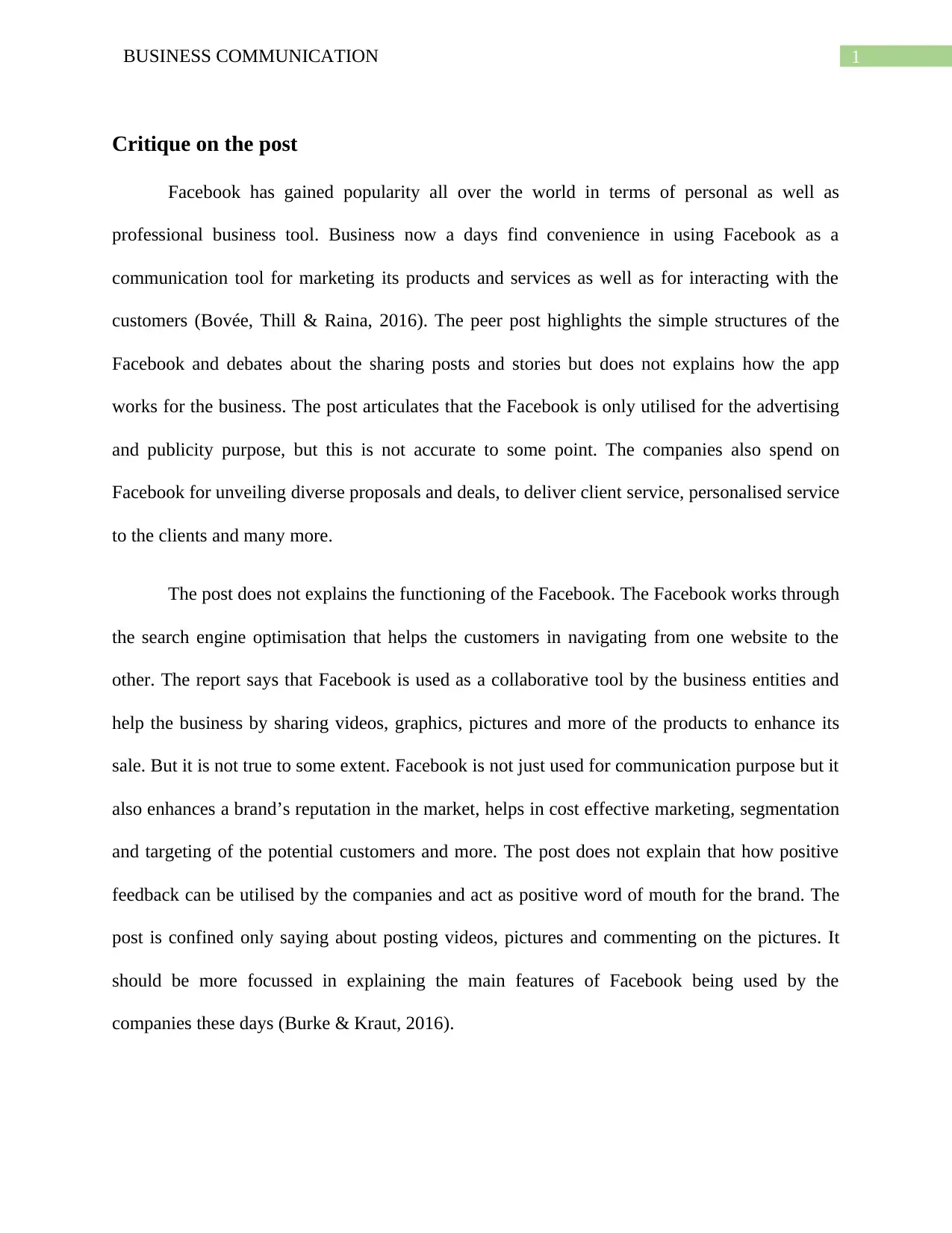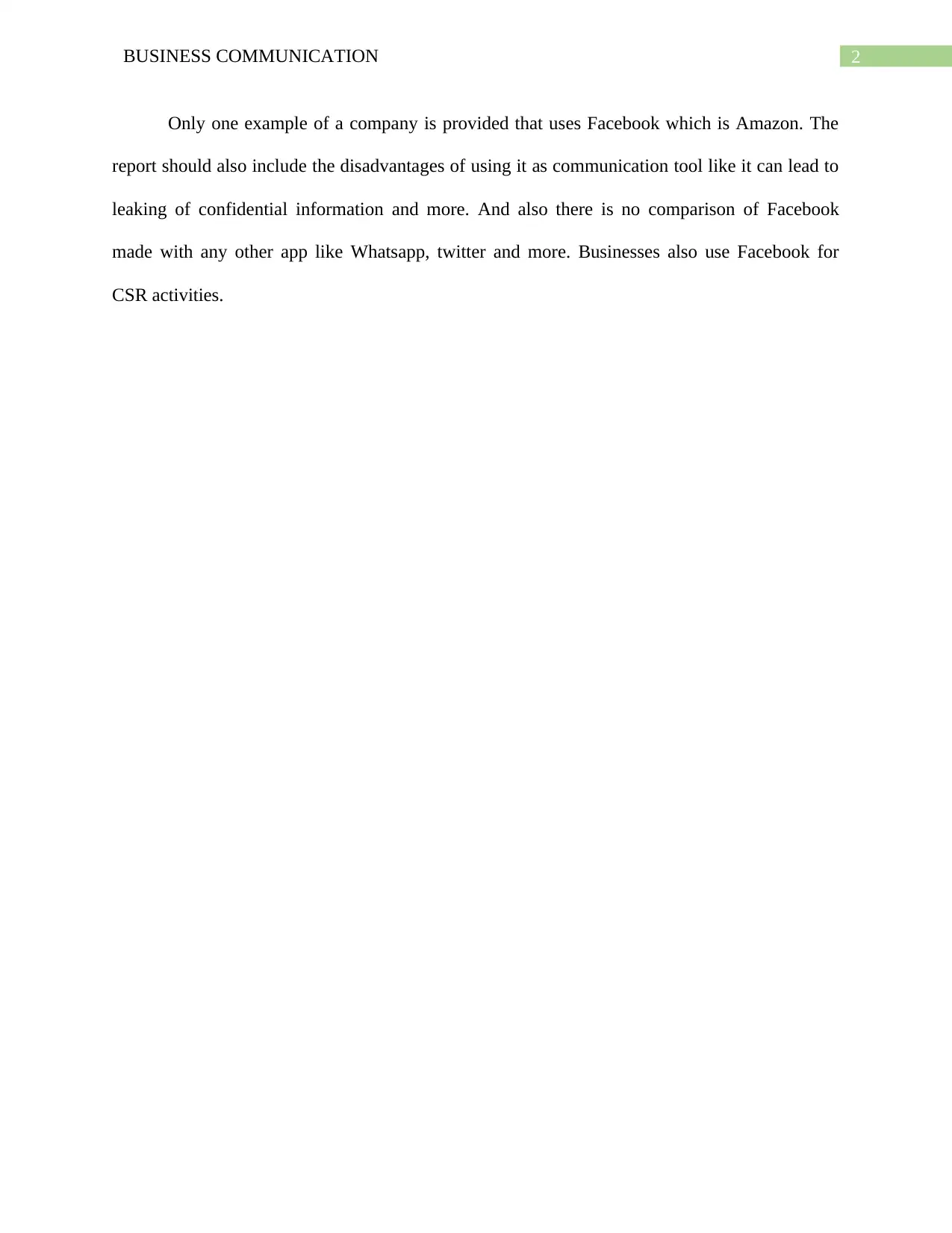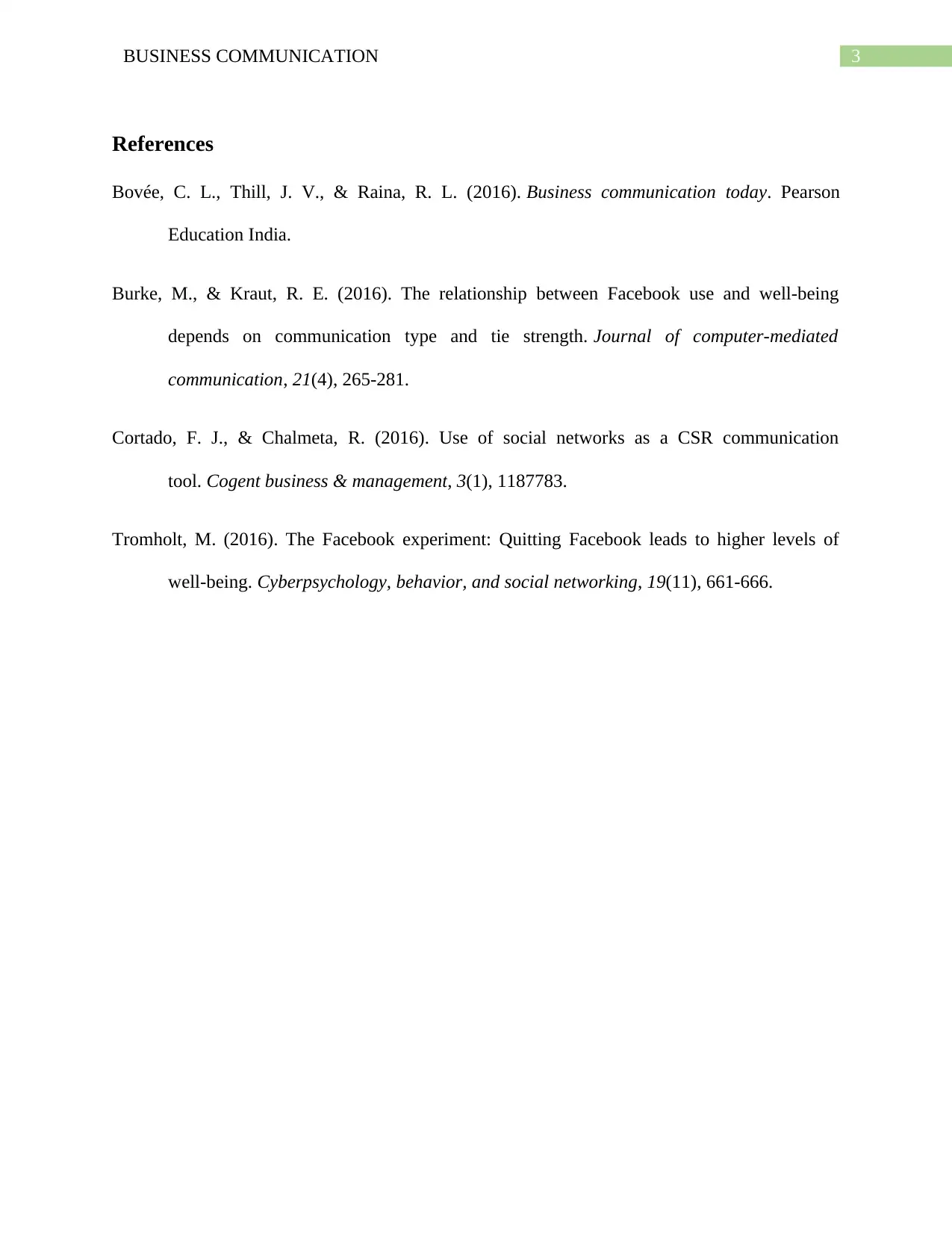Business Communication Report: Facebook Features and Critique
VerifiedAdded on 2022/07/29
|4
|557
|19
Report
AI Summary
This report provides a critique of a peer's post on Facebook as a business communication tool. It highlights the limitations of the original post, which primarily focuses on advertising and publicity, and expands on the various ways businesses utilize Facebook, including customer service, personalized interactions, and marketing strategies. The report explains Facebook's functionality, emphasizing its role in search engine optimization and collaborative tools, such as sharing videos and graphics. It also discusses Facebook's advantages, such as enhancing brand reputation and cost-effective marketing, while also acknowledging potential disadvantages like information leaks. The report includes references to academic sources and suggests areas for improvement in the original post, such as a more comprehensive discussion of Facebook's features and a comparison with other social media platforms. The report emphasizes the importance of positive feedback and the role of Facebook in corporate social responsibility activities.
1 out of 4











![[object Object]](/_next/static/media/star-bottom.7253800d.svg)